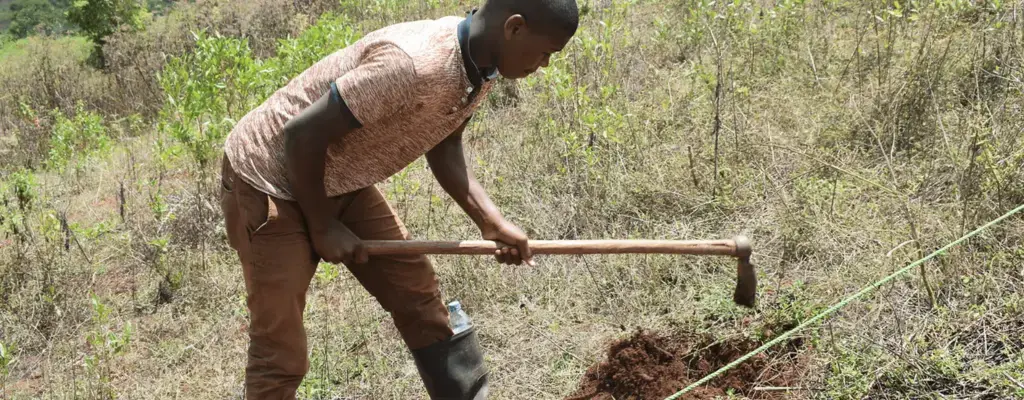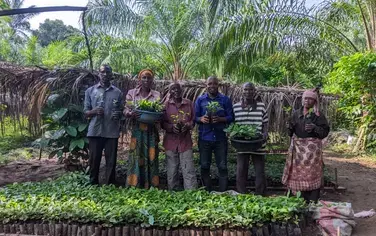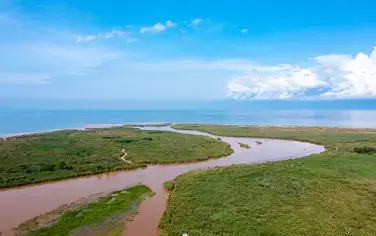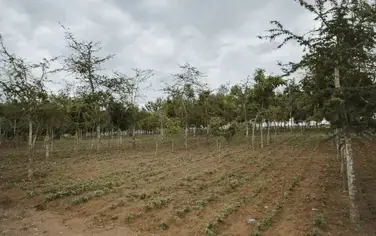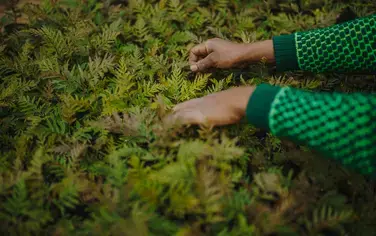This article originally appeared on One Tree Planted's website here.
Africa has become a region with lots of restoration activity since the launch of the AFR100, a country-led effort to bring 100 million hectares of land in Africa into restoration by 2030.
AFR100 contributes to the Bonn Challenge, the African Resilient Landscapes Initiative (ARLI), the African Union Agenda 2063, the Sustainable Development Goals, and other targets.
Tanzania is one of the countries in the AFR100, and that's one of the reasons this is our 2nd big planting update in Tanzania in the past 6 months! You can look back on our previous project of 69,000 trees planted for even more of the history and our ongoing efforts.
Here's some background on the Usambara mountains, where the latest batch of trees were planted.
Reforestation was needed because the region has lost more than 80% of its historical forest coverage. A rapidly growing population resulted in much of the land being converted to agricultural use, in particular for the production of cash-crops like tea. Deforestation at this scale led to a loss of habitat for many endemic species of wildlife, increased regional drought and soil erosion, and destabilized the water supply in surrounding communities - especially the Lushoto district - for more than 20 years.
By planting native tree species, including fruit trees like avocado and plum, as well as Moringa and Grevillea, this project is conserving the biodiversity of the Usambara mountains and restoring balance to the local ecosystem, all while addressing the needs of the families who rely on the forest for food, water, and income. This effort also supports global goals to address climate change.
The newly planted trees will improve the lives of some 400 farming families who will be able to access quality fruit, both to eat and generate income. Our partners are also working with the farmers to raise awareness about proper land management and agroforestry, ensuring the communities benefit from the trees well into the future.
On top of fruit production, tree planting will reduce soil erosion and improve ground water retention so community members have access to drinking water all year round. Benefits from improved water retention also extend well beyond just the communities in the area; the Usamabara mountains are part of a critical watershed for the 5.5 million people living in Dar es Salaam, Tanzania's largest city!
This project will also reduce pressure on the nearby Magamba Nature Reserve. The reserve has been degraded by the illegal harvesting of fruit and timber for decades. With the planting of these trees communities will no longer depend on the reserve for food and other resources, and the habitat of the many endemic species living in the reserve will continue to be protected.
With the help of 15 volunteers and 10 professional staff, the 100,000 trees restored more than 200 acres of land. Here's how the 100K trees were allocated:
- 40,000 seedlings were planted at Magamba nature reserve
- 10,000 seedlings were planted to the non-forest reserves of Vuga and Kinko
- 40,000 seedlings were distributed to the local farmers for agroforestry
- 10,000 seedlings were planted at the local schools compound
